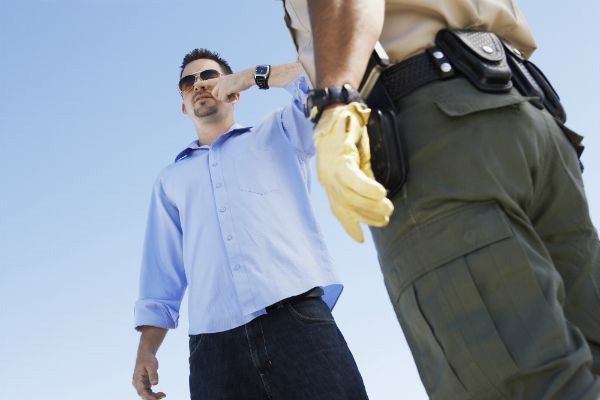The following responses to frequently asked questions are designed to address issues concerning Maine OUI cases. Due to time and space limitations, the answers are general in nature. For more detailed information regarding the specifics of your case, you should contact Nichols & Tucker for a free consultation.
If you have been stopped by an officer, you will need to provide him with your license, registration, and proof of insurance. You are not required to answer any of his questions. Those questions will usually include inquiries such as “have you been drinking?” “how much have you had to drink?” “where are you coming from?”, etc. If you do decide to answer the officer’s questions, particularly questions about the consumption of alcohol, you are better off admitting to the consumption of alcohol rather than denying the consumption of alcohol. Generally speaking, the officer will be asking you questions about alcohol consumption because he can smell the odor of intoxicating beverages coming from the passenger compartment of your vehicle or directly from your breath or both. Click here for information on police roadblocks and sobriety checkpoints for drunk driving.
In most cases the officer, if he smells alcohol, will ask you to exit your vehicle to perform field sobriety tests. The ‘exit order’ must be justified by a reasonable and articulable suspicion on the officer’s part to suspect that you are operating under the influence or that you have committed some other type of crime. Whether or not his suspicion was reasonable is a question to be determined by the court at a later date. Once you have exited the vehicle, the officer will ask you to perform a series of field sobriety tests. Field sobriety tests are voluntary. The officer may not compel you to perform them. In other words, it is your choice whether or not to perform the field sobriety tests.
If you decline to perform the field sobriety tests, that fact will be admissible in any trial or administrative hearing for operating under the influence. Likewise, if you do decide to perform the field sobriety tests, the results of your performance will be admissible in any trial or administrative hearing for operating under the influence. The decision of whether or not to perform the field sobriety tests is a personal one. You are not entitled to the advice of an attorney in making that decision.
If you have any physical disabilities that may hinder your performance of the tests, you should make the officer aware of that fact prior to the performance of each test. These tests are very difficult to perform to the satisfaction of the officer, according to his training, even for a person in perfect health and one who is very athletic and nimble.
If the officer decides to place you under arrest, do NOT attempt to “talk your way out of it”. Statements like “come on, give me a break”, “if you let me go, I promise I will just walk home”, “I only live right up the road”, etc. will end up in the police report and will be admissible at any trial or administrative hearing for operating under the influence and will, obviously, hurt your case. Following your arrest, you should NEVER attempt to contact the officer or have a friend call a friend of a friend who has a friend who works at the same police department to obtain leniency for you. That tactic will backfire virtually every time. Likewise, do not recite a list of names of police officers whom you know to the arresting officer. Again, this tactic will backfire almost every time.
The officer is not required to read you your Miranda rights unless two things have occurred. First, you must be under arrest. The roadside questioning and the conduct of field sobriety tests do not arise to the level of an arrest. Second, you must be subjected to interrogation. Interrogation does not include questions regarding your name and address. Furthermore, interrogation does not include questions from the officer regarding your understanding of the Implied Consent warnings or your willingness to submit to a chemical test (breath test, blood test, or urine test). Interrogation is any question that is designed to elicit an incriminating response.
During the course of OUI investigations, officers are trained not to ask questions that constitute interrogation prior to the administration of the breath test. Accordingly, officers will very rarely read you your Miranda rights prior to the administration of a chemical test. Following the provision of Miranda warnings, you need not answer any of the officer’s questions without a lawyer present. Your invocation of your Miranda rights (the right to remain silent, the right to counsel, etc.) is not admissible against you in any trial for operating under the influence. If the opportunity presents itself you should exercise this right without fear of adverse consequences.
Following your arrest for operating under the influence, you should contact Nichols & Tucker immediately for a free consultation in order to obtain complete information about your case and advice about how to proceed.
This is undoubtedly the most frequently asked question that I receive from people who have never been convicted of operating under the influence. There are a myriad of factors that go into this answer in cases involving serious bodily injury and/or death. For purposes of this answer, I will focus solely on what you should do if you have no priors and your case does not involve a death or serious bodily injury.
Maine has an Implied Consent law. That law requires you to submit to a chemical test (breath, blood or urine), if a law enforcement officer has probable cause to believe that you have been operating under the influence and he requests that you submit to a chemical test. Without getting into all of the details, if you submit to a chemical test, you will be able to limit your license suspension exposure to a total of 30 days between the administrative license suspension proceeding and a court conviction. That is the worst case scenario. If you refuse to submit to a chemical test, you are subject to losing all of your driving privileges for a period of 14 months.
There are various ways to limit your exposure, including but not limited to, having charges reduced in court, winning your administrative hearing, and following the advice of an experienced OUI attorney regarding the timely fulfillment of your DEEP requirements and payment of reinstatement fees. If you are convicted of operating under the influence with a refusal, you are subject to a MINIMUM mandatory jail sentence of 4 days. In many counties, including Cumberland County, that sentence must be served via actual jail time. If you submit to a chemical test, you minimum mandatory jail sentence may be no time at all or up to 48 hours. The 48 hour jail sentence is almost always served through an alternative sentencing program rather than incarceration at the Cumberland County Jail.
The administrative adjudication for refusing a chemical test as opposed to taking a test, will count as a prior conviction if you are charged with operating under the influence in the future regardless of the disposition of your criminal case in court. Additionally, your refusal to submit to a chemical test will be admissible against you in any trial for operating under the influence. Many judges will give the jury an instruction at the conclusion of a trial that your refusal to submit to a chemical test may be considered as “consciousness of guilt” and may support a conviction for operating under the influence in and of itself.
When you are called upon to make your decision about whether or not to submit to a chemical test, you are NOT entitled to the advice of an attorney or a friend or a loved one. The decision is yours. But, you need to be aware of the consequences of your decision.
The arresting officer and/or a bail commissioner will assign you an initial court date. That date is called an arraignment. Again, there are a number of nuances for felony cases (folks with 2 or more prior offenses within a 10 year period, cases involving death or serious bodily injury). For purposes of this answer, I will limit my response to misdemeanor OUI cases.
The arraignment is simply a date upon which you will enter a plea of guilty or not guilty. If you have an attorney, you will not be required to attend. Your attorney will be allowed to submit a written plea of not guilty. Shortly thereafter, the clerk’s office will send out a scheduling notice. The next court date will be a negotiation date, a date for the attorneys for each side to attempt to work out an agreed upon disposition of the case. An agreed upon disposition may involve a plea to the charge, a plea to a reduced charge, a deferred disposition, a filing or some other type of alternative disposition of your case.
If the case cannot be resolved by a negotiated agreement, the case will be set for trial.
From 1985 to 2005 approximately 96-97% of criminal cases in the State of Maine were resolved without trials. Today, in my opinion, the percentage of criminal cases that are resolved without trials has risen to about 98-99%. While that may put your mind at ease, it should not put your attorney’s mind at ease. It is the responsibility of each and every attorney to anticipate, from the start, that every case will result in a trial. The attorney must prepare accordingly. That type of preparation affords you the best opportunity to obtain the best plea offer from the state possible. At that point, you will be able to make an informed decision of whether or not to accept the offer or to proceed to trial. The only way that your attorney will be prepared to try the case, in the event that you chose to proceed in that fashion, is for your attorney to treat each case as though it will proceed to that final stage.
Most people think that the test result is conclusive evidence of their guilt. However, that is far from the truth. The lawyers at Nichols & Tucker have resolved countless cases with tests results of 0.08 or higher with reduced charges, dismissals, deferred dispositions, filings and not guilty verdicts from juries and judges on a regular basis. You are NOT guilty because of a number that a machine spits out.
You should not hire “any attorney” to represent you on an OUI case. You should hire an attorney experienced in defending OUI cases, teaching the defense of OUI cases to other attorneys, certified as an Intoxilyzer operator and qualified an expert witness to testify about the operation of the Intoxilyzer to represent you. We are those attorneys.
For additional information read Why do I need an attorney that specializes in DUI Defense.





